In February, I tweeted that the most irritating weight loss recommendation for 2024 would be to avoid ultra-processed food [UPF]. I predicted my truth. Since then, I’ve read countless surface-level articles on UPF harms, I’ve seen a ‘Book of the Year’ nomination go to one claiming that UPF isn’t real food, and, to top it off, last week I witnessed two elderly women counting the ingredients on a packet of white chocolate fingers, debating the “acceptable amount to rid the belly”. One argued no more than 5; the other argued it was more like 15. They sat the fingers back on the shelf in any case, picking up a multibag of ready-salted crisps instead. (I looked at these after… only 5 ingredients. Clever).
The reason for my tweet was not because I have strong views on whether food processing is problematic for weight management. Nor was it because I contest the evidence suggesting that around 60% of UPFs are hyperpalatable and easy to overeat (think donuts, cookies, milkshakes). The reason for my tweet was simply because, believe it or not, one of the best diets for weight loss is comprised almost exclusively of UPF. That doesn’t mean KFC for lunch and McDonald’s for dinner. I’m referring specifically to what’s called ‘total diet replacement [TDR]’, when you consume nothing but 800kcal-ish worth of ultra-processed shakes, soups, and bars every day for up to 6 months (usually 3–4) before slowly reintroducing food. It sounds like a fad diet, I agree, but the positive evidence for TDR and obesity is overwhelming and at least as strong as any minimally-processed diet.
One of the first demonstrations of TDR benefits in a long-term randomised controlled trial was the DiRECT trial. 306 adults with type 2 diabetes and overweight/obesity were assigned to either TDR or usual care, and the participants in the TDR group lost 10.0 kg at 12 months, versus only 1.0 kg with usual care. Bodyweight fell sharply by 14.5 kg during the initial 3–5 month TDR phase, when the diet was exclusively UPF, followed by small increases during the following months when food was reintroduced. At 12 months, 24% of people in the TDR group had lost at least 15 kg, which, to be semi-controversial, isn’t that far off the impressive effects of semaglutide/Wegovy, the obesity wonder drug.
One study achieving at least 10.0 kg of weight loss at 12 months isn’t overly impressive, though. A number of low fat studies and low carb studies have occasionally achieved this, so it’s not novel. What’s most impressive is just how replicable the dramatic weight loss with TDR has been since DiRECT. The finding of 10.0 kg weight loss or more at 12 months occurs again and again and again.
The first replication of the weight loss results in DiRECT was the DROPLET trial, published in 2018. At 12 months, the 138 adults with obesity in the TDR group lost 10.7 kg at 12 months, 7.2 kg more than the 140 adults with obesity assigned to usual care. 73% of the TDR group achieved ‘clinically meaningful’ weight loss (≥5% body weight).
The second replication was the Tempo trial in 101 postmenopausal women with obesity, published in 2019. The TDR group lost 15.3 kg at 12 months, 6.6 kg more than usual care. 82.0% of people in the TDR group lost ≥10% of their bodyweight. Look below at the waterfall plot of individual weight loss outcomes with TDR (labelled ‘Severe’) and tell me you aren’t impressed. Yes, that is one person losing 35% of their bodyweight in 12 months. What a demon.
The third and final replication, that I’m aware of, is a study by Brown et al. in 90 people with obesity and type 2 diabetes. The TDR group lost 9.8 kg at 12 months, 4.3 kg more than usual care. Ok, not quite meeting the 10 kg threshold I just mentioned, but spare me the 0.2kg to make my argument sound a bit more impressive. (especially when weight loss was close to 15 kg up to 6 months).
So, taking this evidence into consideration, I ask what diet emphasising minimally-processed foods is better than TDR for weight loss at 12 months?
Maybe the POUNDs trial, which investigated various energy-restricted diets of different macronutrient compositions, all based around minimally-processed foods? But I don’t think so. The average weight loss was between 6.9–7.5 kg at 12 months in all diet groups. How about something like the VIRTA study with the ketogenic diet, or the BROAD study with a plant-based diet? Maybe – these studies did report weight loss between 11.5–13.8 kg of weight loss at 12 months; however, the replication compared with TDR is not quite the same. Most ketogenic diet and plant-based studies report weight loss in the 1–7 kg range at 12 months in people with overweight/obesity. Still very decent, but not better.
We are therefore left with the very real possibility that the most effective diet for weight loss at 12 months is TDR, one that is, at least for a period, exclusively UPF. How’s that for a headline.
Maybe Simplicity is Key
I’ve presented this data to people before and inevitably the question that comes flying back is… but why does it work so well? Who in their right mind is choosing to ditch whole foods for months and eat these bland products that surely just leave you wanting more? And the honest answer here is, I don’t fully know. But I have a couple of theories.
First, even though people expect TDR to be close to mental torture, that doesn’t end up being the reality. People are often surprised by how much easier and more mentally freeing TDR is than conventional diets. They can basically park any confusion or inconveniences they have with food choice, portion size, cooking skills, and preparation time – instead, they just have to follow the simplest of instructions… “Here’s what you do: every day, consume this drink and eat this ready-to-go soup and/or bar. Done. Enjoy the rewards and thank me later.” People love simplicity and TDR embraces that. It’s probably why meta‐analyses report no marked adverse effects of TDR on any mental wellbeing subdomain, including depression, anxiety, stress, and vitality, with quality of life improving in some instances. Plus, even in groups that you think would absolutely hate this approach, like the Māori, who have a massive culture around food and shared eating, TDR is generally well-received. So for many people, implementing and sustaining TDR really isn’t that bad.
Second, the initial tougher phase of the diet that causes all the weight loss is no longer than 6 months. Meaning, the finish line is always in sight. This defined endpoint can make it easier for people to keep their motivation rolling, rather than trying to sustainably tweak decades-long eating habits and miserably failing on repeat. Because, unlike what many assume, the extreme weight loss from the initial TDR phase stays with you for a fair while longer than 12 months. In DiRECT, the 95 people who continued with low-intensity support up to 5 years remained 6.1 kg below their baseline weight at 5 years. They kept most of their weight loss off. Similarly, in DROPLET, the TDR group maintained weight loss of 6.2 kg at 3 years. Just left than half of their weight loss was kept off. 46% of the TDR group even managed to maintain a loss of ≥5% of their baseline weight. That’s pretty good. Certainly much better than the 80% weight regain at 5 years that we expect with conventional weight loss diets. Weight regain with TDR at 3–5 years is more in the region of 40–60%.
There is also the option to just repeat the initial TDR phase when the weight comes back. I’ve worked with a handful of people who have been pretty successful doing the initial TDR phase for 3 months every couple of years, eating fairly normally outside of that. That’s an option too, if you fancy it.
Don’t Let TDR Live in the Shadows
So, to summarise, in a frustrating online world of emotionally-triggered diet camps, low-carb vs low-fat, carnivore vs vegan, and now minimally-processed vs ultra-processed, I’m sitting here wondering when someone will join my cult. I’ll call it the TDR cult. If you know someone with obesity who struggles with conventional dieting, know that for a short while, they might be better off embracing shakes, soups, and bars. It’s easily the most overlooked nutritional intervention out there, so have fun and spread the word. Now excuse me while I go and devour some white chocolate fingers.





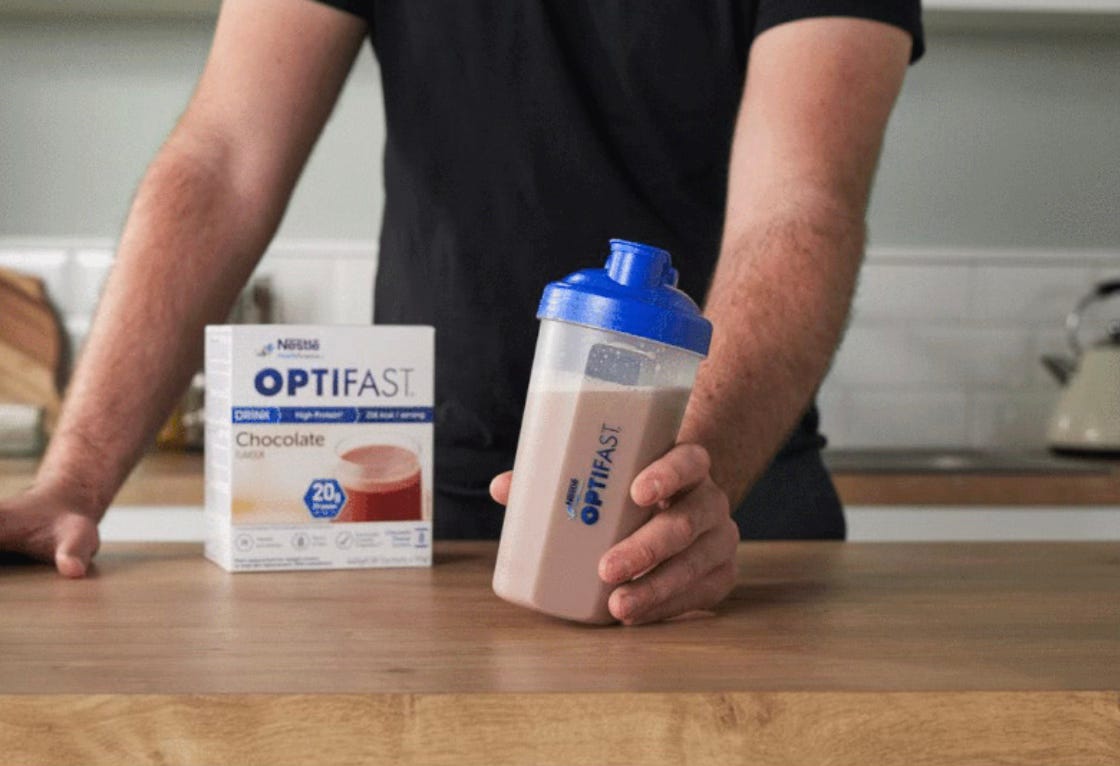

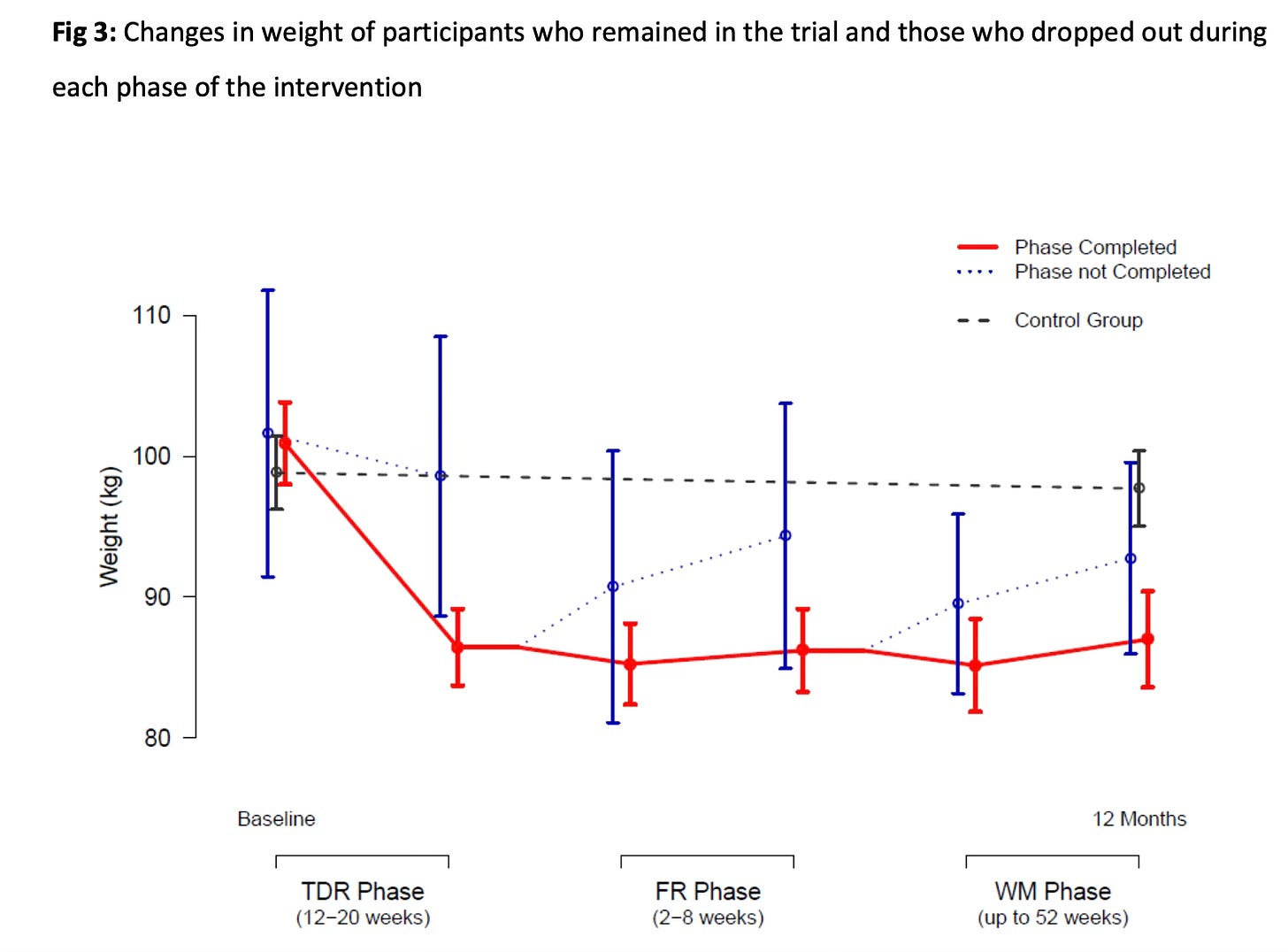
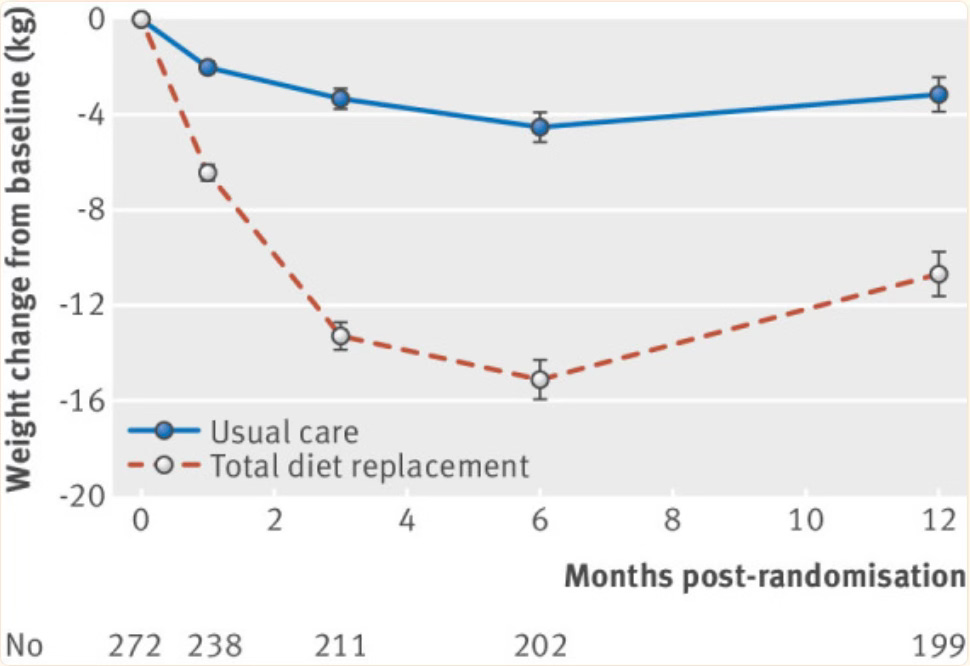
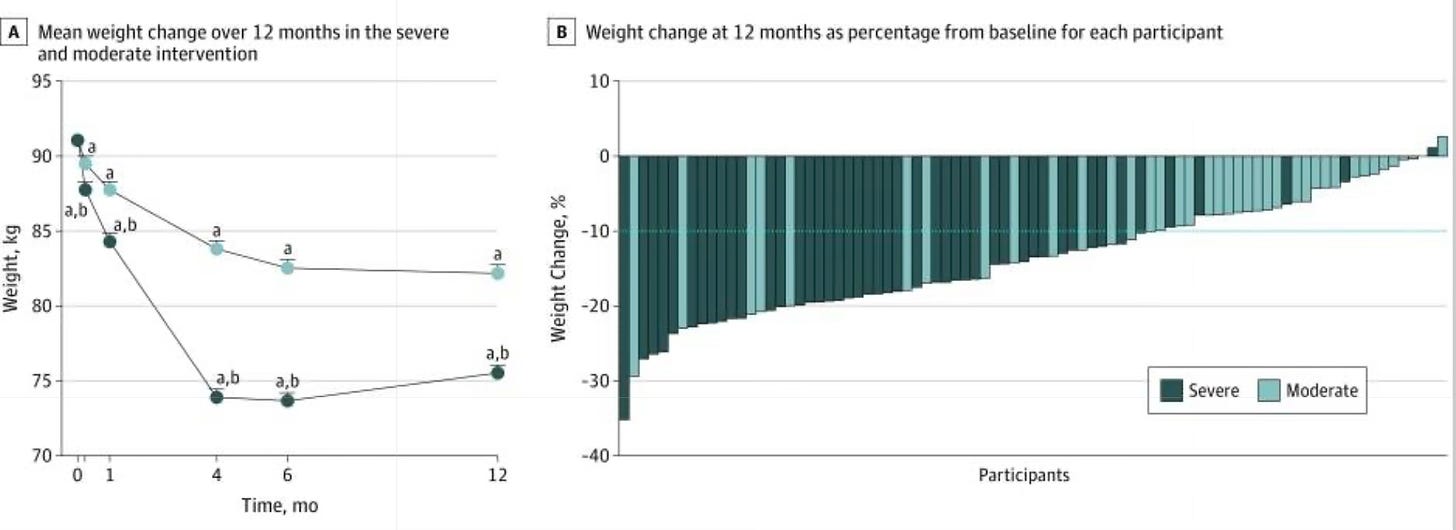
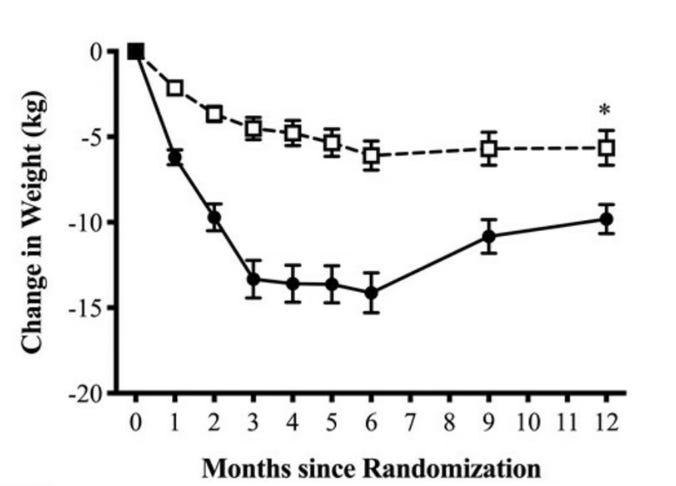
Thank you for another refreshingly honest article, well researched and written with conviction and your trademark humerous edge.
I'm considering doing something like this to jumpstart a weight loss plateau.
Have 1 or 2 days a week be TDR.
Those shakes definitely work!